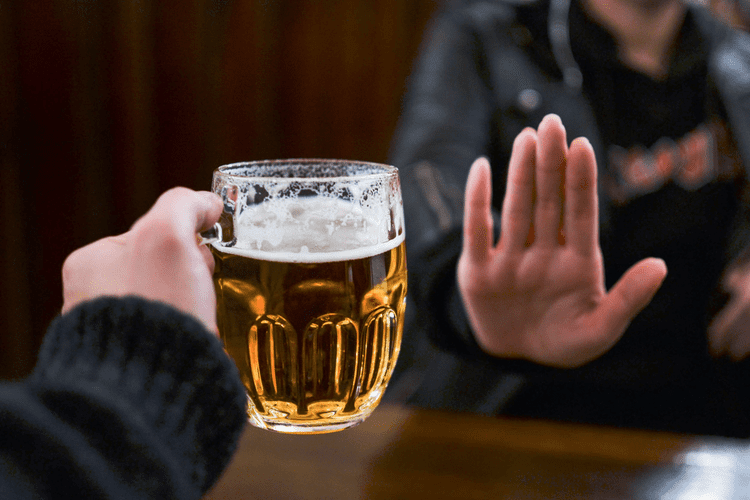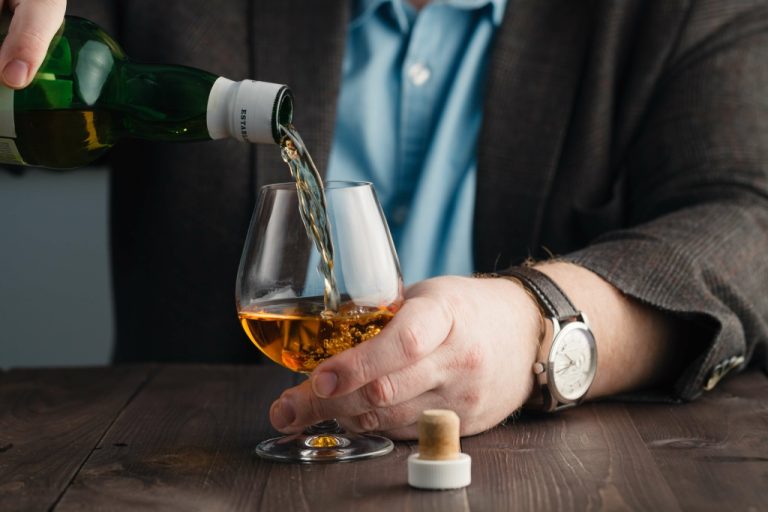Wine addiction is a serious condition that can cause serious health complications and financial difficulties. It is important to recognize the signs of wine addiction and to seek treatment if you or someone you know is struggling with an addiction to wine. With the right treatment, people with wine addiction can find lasting recovery. The term “wine addiction” is often used interchangeably with “alcoholism”, which is a more general term for addiction to any type of alcoholic beverage. However, wine addiction is a distinct condition, and it is important to understand the differences between wine addiction and alcoholism.

Perhaps you start with a single glass to relax after work, then it becomes two or three glasses. If you rely on wine for comfort, to deal with stress, or to feel more social, it can sneak up on you. The truth is, wine addiction is just as real as addiction to any other kind of alcohol.
- As a wine enthusiast, I have often pondered the addictiveness of this beloved drink.
- This paradox has been attributed to the moderate consumption of wine, particularly red wine, which is high in antioxidants and polyphenols.
- Even if you are not ready to stop drinking alcohol, there are ways you can participate that are safer at the time of drinking and over the long term.
- There are three different core types of alcohol, wine, beer, and liquor with many other subcategories.
- Although wine has a low alcohol content per serving of 12% and it’s not as strong as other forms of liquor, wine is still very potent and easy to become addicted to.
Understanding the severe consequences alcohol can have on the mind and body will help you or someone you love seek treatment to overcome the disorder. The National Institute on Alcohol Abuse and Alcoholism says 16.3 million adults were diagnosed with Alcohol Use Disorder (AUD) in 2014. Talk to a healthcare provider if you are concerned about your drinking or that of a loved one. Professional treatments and support can help you overcome alcohol misuse and alcohol use disorder and improve your overall health and well-being.
Question 2: What Are the Signs of Alcoholism?
- In the past, the alcohol content in each of these different drinks was much lower than today.
- The problem with tequila is that even if you only drink one serving, you’ll find yourself becoming addicted to the alcoholic drink quickly.
- At this point, you may have alcohol cravings or drink to avoid the low feelings withdrawal causes rather than for the pleasurable feelings alcohol consumption may offer.
- Excess alcohol use can also impair nutrient absorption in the small intestine and increase the risk of malnutrition.
Any beverage that contains alcohol can become addictive, and it will usually come with many of the same symptoms. Most people who drink excessively tend to start noticing physical problems that are directly related to their drinking. Or you may be struggling with dehydration if you aren’t drinking enough water. This also means that being addicted to beer vs. wine is not necessarily going to come with worse repercussions. How bad your addiction is depends on your drinking habits and your lifestyle.
Finding Help for Alcohol Addiction
Occasional wine consumption causes a blood pressure spike, but this tends to wear off. However, consistent wine binges can lead to chronic high blood pressure. Understanding your risks and doing your best to reduce them is the best way to prevent substance addictions. BetterHelp can connect you to an addiction and mental health counselor. As soon as you recognize you have a problem, it’s vital to seek help as quickly as possible.
Overcoming the Fear of Success in Addiction Recovery
If you have specific concerns or a situation arises in which you require medical advice, you should consult with an appropriately trained and qualified medical services provider. Even though alcohol is widely socially acceptable, many people are still able to recognize when it has become a problem. This is especially easier to what is alcoholism do when it comes to viewing how other people drink.

Can a Person with Alcohol Use Disorder Drink Any Alcohol?
- This can lead to excessive drinking, which can eventually lead to physical and psychological dependence.
- But if the intention was a single glass, and more often than not you find yourself staring at the bottom of the bottle, your habit is no longer just a casual tendency.
- However, wine addiction is a distinct condition, and it is important to understand the differences between wine addiction and alcoholism.
- Once wine is consumed, it works to enhance the inhibitory power of GABA in the brain, allowing GABA’s inhibitory functions to have a stronger effect.
Although there have been no randomized, controlled trials of CAD outcome events, many epidemiologists now feel that there is little doubt that alcohol exerts a protective effect against CAD. There is no form of alcohol that is safe to drink for a person who has a dependency or alcohol use disorder. Even a mixed drink or a beer can create a risk to their sobriety and overall health. Even over years of continued abstinence from alcohol, a person who has a drink with any alcohol in it could be on the path towards relapse.
Support
But many of us have been there before, and we’re here for you now. Day drinking has become something is wine addictive of a meme and joke lately, but it can interfere with your alertness, your thought processes, and your ability to work or drive. Do you make excuses to drink earlier in the day or joke that “it’s five o’clock somewhere”?
Factors That Contribute to Wine Addiction
By being informed and responsible, you can enjoy wine while minimizing its negative effects. People who have addiction will often struggle with impulse control. This results in them being unable to stop their addictive habits even as these habits lead to more substantial negative repercussions. Treatment options include individual therapy, group therapy, and medication. Recovery Ranger is a website that offers direction and support for those seeking to overcome addiction and achieve lasting sobriety.
Drinking can also contribute to neurologic symptoms such as difficulty standing, https://detailing-parts.gr/medical-expert-reveals-how-much-alcohol-counts-as/ unsteady walking, and numbness and tingling. This website utilizes various technologies that are meant to make it as accessible as possible at all times. We utilize an accessibility interface that allows persons with specific disabilities to adjust the website’s UI (user interface) and design it to their personal needs. If you’re ready to take back control, you’re not alone—and you don’t have to do it alone.
Addiction to wine happens the same way it happens with other forms of alcohol. Over time, your body begins to crave the substance, and it takes more and more wine for you to feel the same effects. When it comes to wine, it is the alcohol content that is the primary concern in terms of addiction. Many wine drinkers seclude their wine habit in the evening when they are free to sit back and enjoy a glass of wine with dinner or a movie. But if you have started to create an addiction to wine, you may struggle to keep it in that evening time slot. Some earlier studies were unable to separate exdrinkers from lifelong abstainers or to control for baseline CAD risk.